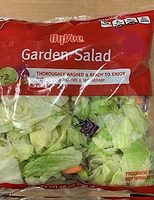A test conducted by Consumer Reports has revealed the presence of microbiological contamination in leafy green products on grocery store shelves.
Consumer Reports examined 284 samples of fresh kale, lettuce, and spinach. In the end, six samples tested positive for Listeria monocytogenes.
Two of the samples were packaged, pre-washed greens—one spinach and the other a “triple-washed” organic spinach spring mix. The other four positive samples were loose heads of bunches of kale, green leaf lettuce, red leaf lettuce, and spinach. All samples were purchased from various grocery store chains, including Costco and Whole Foods, located in the Tri-State area (Connecticut, New Jersey, and New York) between June 3–19, 2019.
- Acme—unbranded, unbagged red leaf lettuce
- Costco—bagged spinach from Boskovich Farms (marked “triple washed”)
- Hannaford—unbranded, unbagged spinach
- Whole Foods—unbagged green kale from Lancaster Farm and unbranded, unbagged green leaf lettuce
The strain of Listeria monocytogenes detected was genetically linked to at least two previous listeriosis cases reported to the U.S. Centers for Disease Control and Prevention (CDC). It is unknown whether or not those individuals consumed leafy greens.
A number of foodborne outbreaks linked to leafy greens over the past few years are what led Consumer Reports to test similar products for harmful bacteria. Although those outbreaks sickened consumers with Escherichia coli O157:H7, that strain—nor any other strain of E. coli—was not detected in Consumer Reports’ testing. Salmonella, another common foodborne bacteria, was not found in any of the leafy greens they tested.
After conducting its test, Consumer Reports did notify the U.S. Food and Drug Administration (FDA) (who has a zero-tolerance policy for Listeria monocytogenes) and the CDC about its findings. They also contacted the companies and retailers that marketed and sold the contaminated leafy greens.
Consumer Reports says their study “represents a snapshot of the market and was not large enough to draw conclusions about the safety of specific brands or retailers. But the testing underscores that industry needs to do more to improve the safety of leafy greens.”
Sign up for Food Safety Magazine’s bi-weekly emails!
Subscribe to our podcast: Food Safety Matters!




